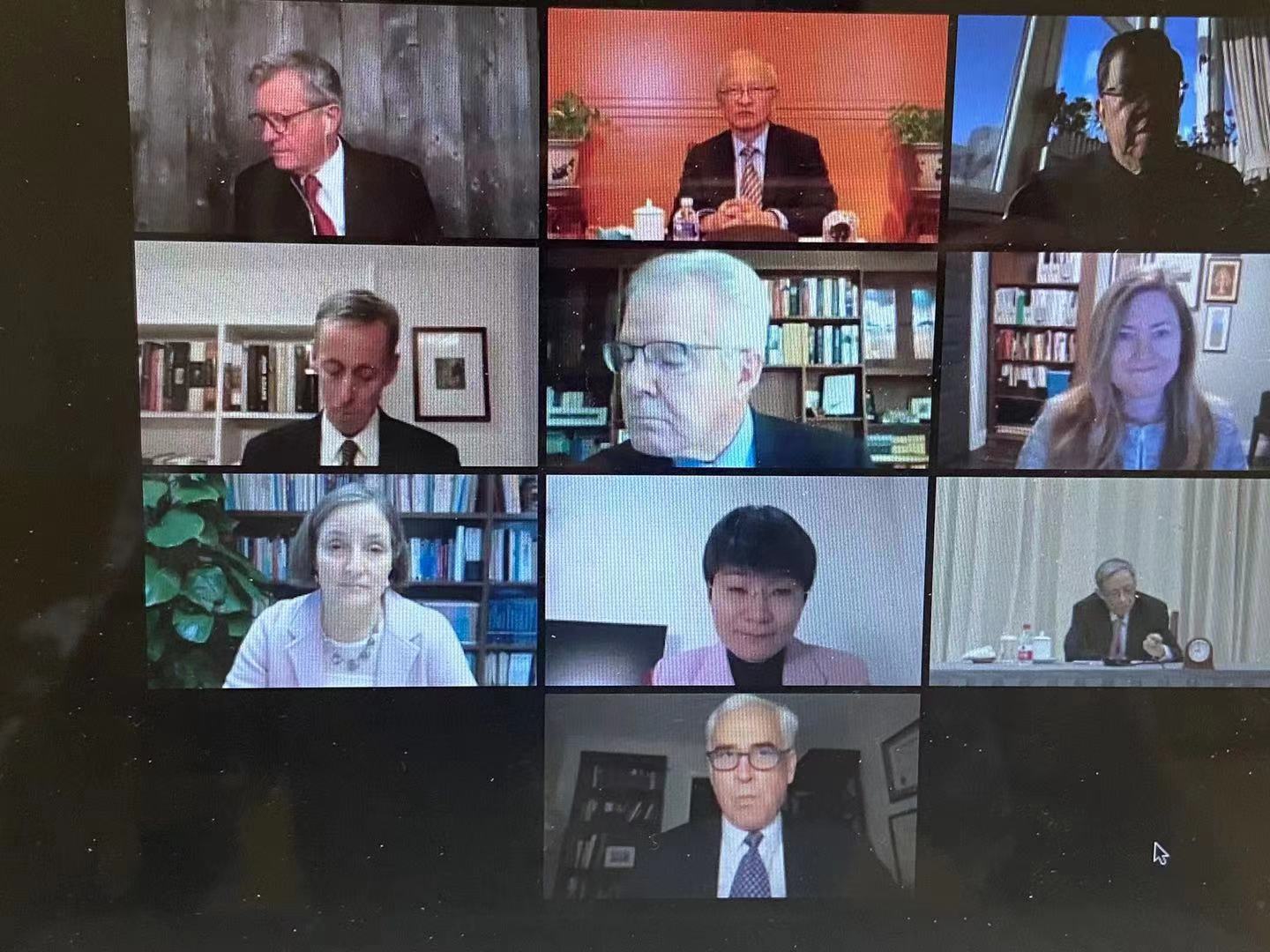
Photo: Xie Wenting/ GT
The day ahead of the 42nd anniversary of former Chinese leader Deng Xiaoping’s visit to the US – a historical move that broke the ice of the Cold War and led to the establishment of diplomat relations between the two countries – diplomats and experts from both countries exchanged views on bilateral ties under Biden administration, urging cooperation instead of confrontation on Thursday.
Cui Tiankai, Chinese Ambassador to the US, said Thursday on an online panel that China and the US must remain closely connected and restore trust, respect and normalcy. While China wishes the US full success in building unity, healing and restoration, it is also hoped that integrity, candor, respect and vision will return to its China policy.
“We may have competition, but we don’t have to be rivals. Instead, we should strive to be partners. America is a great nation, but it has to ask itself: Can it accept the development and prosperity of another nation, whose history, culture and political system is different, and live peacefully with it?” Cui asked the question at the “China-US Engagement: Past Achievements & Future Adjustments” Online Dialogue organized by the Chinese People’s Association for Peace and Disarmament and the Carter Center on Thursday.
Cui slammed the US for making dangerous moves on Taiwan. “When the US side refers to Three Joint Communiqués, they always said the Three Joint Communiqués and Taiwan Relations Act. Now, they say the Three Joint Communiqués and Taiwan Relations Act and the Six Assurances. I think this is very dangerous. If you go on like this, the Three Joint Communiqués will be diluted or even became empty words. That is very dangerous,” he said.
Cui said that there have also been calls recently for the US to adjust its strategy and build an allied and partner coalition, to address China’s challenge and restore balance and legitimacy in the Asia-Pacific. “Such an adjustment is just like putting old wine in a new bottle. It may cause the same mistakes made in the past and create new imbalances, which will further disrupt regional order.”
Li Haidong, a professor at the Institute of International Relations of China Foreign Affairs University, told the Global Times on Thursday that Ambassador Cui’s words sent a clear signal to the US that the idea of some members of Biden’s team who urge strengthening coordination with allies to counter China, which is not acceptable to China.
“China hopes the Biden team will revise these views on China policy, adopt a more constructive approach and be consistent in its attitude and approach to China,” Li said.
“Ambassador Cui’s words are not only candid but also leave room. He pointed out in a friendly way China’s expectations on how to handle bilateral relations,” he added.
Several experts had previously told the Global Times that given the high sensitivity of China-US relations, there will be “very careful probing, fumbling and signaling” between officials of the two countries over the coming period to clarify expectations, red lines, strategic geopolitical ambitions and the limits of what the other will accept. There will be lots of space.
At Thursday’s online panel, former US Ambassador to China Max Baucus expressed optimism toward China-US relations under the Biden administration. He noted that while there will still be tensions, bilateral relations will rise from the bottom and things will be put back together.
Baucus recalled that when he was in Beijing, he was particularly impressed with how well the US and China worked together in fighting Ebola. He proposed that both countries should work like they have in the past, during the fight against the COVID-19, and on climate change.
Craig Allen, President of the US-China Business Council, said that in the US, the Biden administration has to negotiate with Congress – while now controlled by the Democrats, remains very skeptical of China. He predicted that there will be more China-oriented legislation in 2021.
In addition, remnants of the Trump Administration are happy to criticize Biden if he makes any major moves on China, Allen said.
Xin Qiang, deputy director of the Center for US Studies at Fudan University, told the Global Times on Thursday that Biden faces a clear dilemma when it comes to China. “On the one hand, he needs to show that he is not soft on China and that he is not yielding to Beijing; on the other hand, he has to get China’s cooperation. To solve this dilemma, Biden must reshape his strategic perception and positioning of China, and cannot think of China-US relations from a zero-sum mentality.”
According to Allen, the Biden Administration has put in a very strong team of national security, foreign affairs, and trade experts. The entire senior team is very pragmatic, principled, and deeply knowledgeable about China.
As a member of the business community, he pointed out a few reasonable goals and objectives when the business community looks at the current situation.
“We hope that there is more stability. Confrontation should be minimized. National security should not be used as an excuse for protectionism. Supply chains should be efficient, sustainable and flexible,” he said.
In addition, Allen noted that he thinks it is “very helpful for the US and China to use the Comprehensive and Progressive Agreement for Trans-Pacific Partnership (CPTPP) vocabulary, norms and agenda to shape the discussions going forward. This discussion would inform and contribute to global trade regulation, reforming the WTO.”
“It would be best if both countries joined the CPTPP and used the CPTPP as a new paradigm for trade and investment – both regionally and globally,” he said.
